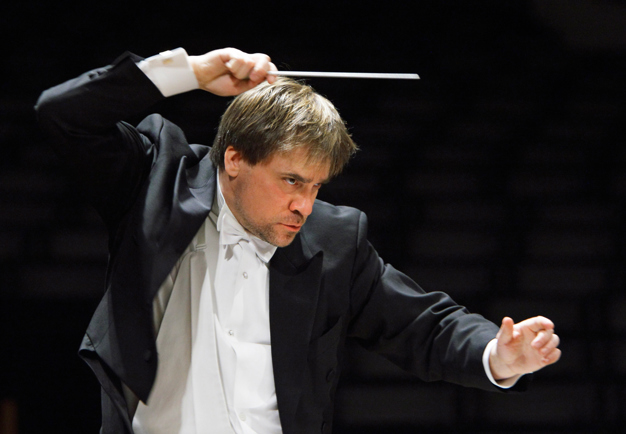
John Storgårds
Beethoven's Eroica Symphony
Beethoven and a New Era
With his charged Third Symphony, Beethoven marked a clear evolution from the legacies of Haydn and Mozart to something new and bold. It was the longest symphony heard to date, twice as long as his predecessors’, and it paved the way for Schumann, Brahms and Bruckner’s continued work with developing the symphony in the nineteenth century.
Symphony No. 3 was initially thought to be a tribute to Napoleon, who Beethoven admired as a democrat and an anti-monarchist. But when Napoleon appointed himself emperor, Beethoven changed his mind and the symphony was dedicated instead to the music-loving patron Furst Lobkowitz. The title Eroica, the heroic, “in memory of a great man”, is what remains of Napoleon. The music spans a broad emotional register and is without a doubt a milestone in music history.
The Royal Stockholm Philharmonic Orchestra will be led by John Storgårds, who until recently was chief conductor of the Helsinki Philharmonic Orchestra and who has been praised for his ability to infuse music with energy. He is also a violinist. His discography is extensive and he has recently been lauded for interpretations of both Sibelius and Nielsen. Storgårds is now principal guest conductor of the BBC Philharmonic Orchestra and the National Arts Centre Orchestra in Ottawa, Canada.
-
The music
Approximate times -
Ludwig van Beethoven Symphony No. 3 ’’Eroica’’53 min
-
Participants
- Royal Stockholm Philharmonic Orchestra
- John Storgårds conductor
